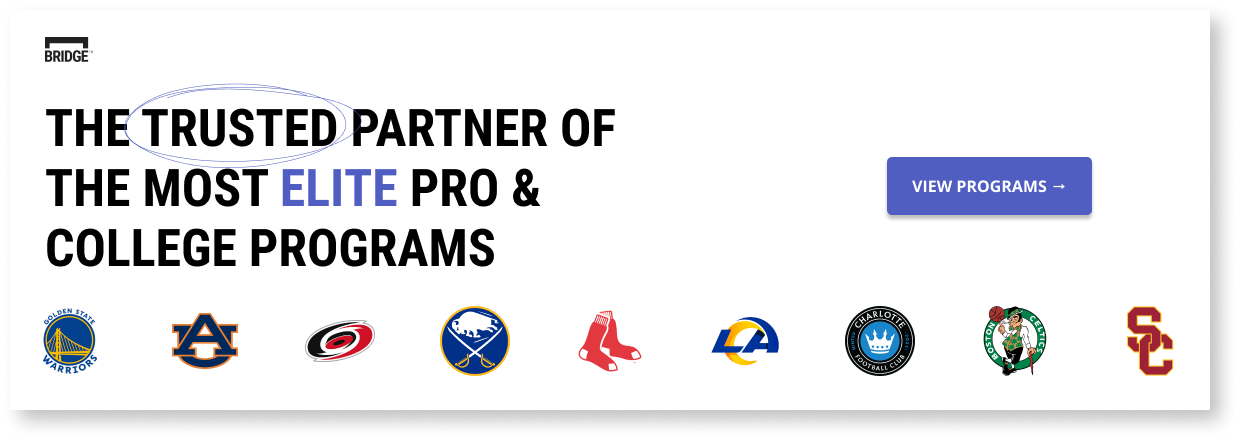Whey, Soy, or Casein Protein: Which is Best for Athletic Performance?
Protein intake is important for all athletes, especially while endurance training. Oftentimes, athletes tend to focus on carbohydrate intake rather than focusing on protein intake, which could have a negative effect on health and overall athletic performance. Muscle growth and repair are heavily dependent on protein levels.
Athletes who don’t fuel their bodies with sufficient amounts of protein will end up canceling out the benefits of a workout, making them more susceptible to fatigue and anemia. Protein deficiency can be a true threat to an athlete's ability to achieve peak performance, however, this can be combated by drinking a protein shake on a daily basis, in order to stay on top of the game and give the body what it needs to sustain daily workouts.
There are countless options for protein shakes, but it is important for athletes to be knowledgeable about which one would work best for their lifestyle.
Top 3 Protein Powders
Whey Protein
Whey Protein is an animal-based protein originating from cow’s milk. It is a “complete” protein, meaning it contains all nine of the essential amino acids that the body does not naturally produce.
Soy Protein
Soy Protein is a plant-based protein originating from the soybean plant. Soy protein is a complete protein, like whey, and is one of the only non-animal-based proteins that are “complete”. Soy is a great protein source for vegan or lactose intolerant individuals.
Casein Protein
Casein Protein, like whey, is a milk-based protein. It makes up 80% of the protein in cow’s milk, making it more abundant than whey. It is also a complete protein.
It is widely known that protein is vital in the development of lean body mass, but important questions still linger. What protein source is the best for athletes? Can the timing of protein consumption affect muscle building? In what foods and supplements can an athlete find specific protein types?
Explore the answer to these questions below:
What Protein Source is Best for Athletes?
The effects of soy and whey protein consumption on building muscle mass were compared in a study done on male athletes. Results revealed that both whey and soy consumption increased muscle mass when combined with exercise training. It also concluded that there was no significant difference in muscle mass gains between the two protein sources. This disproves the preconceived notion that whey is a better protein source to increase one’s lean body mass than soy.
In fact, this study also showed that, in addition to increasing muscle mass, soy protein provides important antioxidants not provided by whey. So, while both whey and soy protein increase muscle mass when paired with exercise, soy protein has the added benefit of containing antioxidants, but this is far from the end of the debate. When determining the best protein source for athletes, it is also essential to consider the protein’s absorption rate.
Can the Timing of Protein Consumption Affect the Repairing and Building of Muscles?
Sources say yes. In fact, whey protein is found to have the fastest absorption rate among all proteins. This knowledge can be used in strategically developing a post-workout fueling plan as the fast absorption of whey protein allows for the quick rebuilding of muscles after consumption. This characteristic makes whey protein great for both pre-workout fuel (the protein can be utilized quickly) and post-workout recovery (to rebuild the muscles that were broken down).
On the other end, soy protein has an intermediate absorption rate, which makes it less effective in immediately rebuilding muscle; however, it is vital in the building of new muscle tissue. Lastly, casein protein has the slowest absorption rate but in doing so it elevates plasma amino acid levels for the longest period of time. These free amino acids can be used to build muscle hours after exercise.
Each of these protein sources provides different benefits, and incorporating all three into a nutrition plan will kickstart muscle synthesis immediately after exercise and maintain it for several hours post-workout.
In What Foods and Supplements Can Athletes Find Each Type of Protein?
Some common sources of soy protein include edamame and tofu. Soy protein can also be found in a powder that can be added to smoothies or sprinkled in cereal. There are also many varieties of soy milk, cheese, and yogurt. A small amount of whey protein is naturally found in milk, cheese, and yogurt, but is most commonly marketed in protein powders, shakes, and other dietary supplements.
This allows for a greater amount of whey protein content to be consumed, which is more protein that is available in natural foods. A few commonly known brands that sell products with whey protein include Muscle Milk, Gatorade, and EAS Sports Nutrition. Lastly, casein protein is found in milk and makes up 80% of the protein in milk sources. Casein protein can also be found in powders with soy and whey.
Recap
Whey Protein
-
- Animal source
- Fast-absorbing
- Ideal for repairing broken down muscles
- Great for pre-workout fuel and immediate post-workout replenishing
Soy Protein
-
- Plant source
- Ideal for lactose intolerance athletes
- Intermediate absorption rate
- Ideal in the formation of new muscle mass
- Also provides anti-oxidative benefits
Casein Protein
-
- Animal source (makes up 80% of protein in cow’s milk)
- Slow absorption rate
- Great for prolonging muscle synthesis hours after exercise
- Animal source (makes up 80% of protein in cow’s milk)
It is important for athletes to find a nutrition regimen that works for their personal lifestyle and workout schedules. While whey protein might be the best option for one athlete, that doesn't mean it's the right choice for you. Remember that protein supplements can help athletic performance, but it is the hard work in the weight room and at practice that will ensure your development and allow you to reach that goal you have been training for. Read more about how other supplements, like caffeine, affect athletic ability.
References:
1. Brown, Erin et al. (2004) Soy versus whey protein bars: Effects on exercise training impact on lean body mass and antioxidant status. Nutrition Journal 2004, 3:22
2. http://www.fitday.com/fitness-articles/fitness/body-building/which-is-best-soy-protein-or-whey.html
3. http://www.nutritionexpress.com/showarticle.aspx?articleid=787
4. http://www.precisionnutrition.com/whey-vs-casein
About the Author

Shelley graduated from UC Berkeley in 2012 majoring in Integrative Biology and is currently applying to nursing school. She competed on the women’s swim team at Cal and contributed to three NCAA Championship team titles in her four years. Shelley’s interest in exercise physiology was sparked after discovering connections between the materials learned in her anatomy lab and her athletic endeavors. It is her goal to share this knowledge and inspire other athletes to make these connections to help them reach their personal goals. After finishing her swimming career in 2012, Shelley is now a triathlete utilizing her background in exercise physiology to aid this athletic transition.
Related Posts

Supplement Safety with Tactical...
Dietary supplements seem like the "magic pill" a tactical operator needs to perform better,...

Eating Healthy on the Go: Tips for Busy...
It's no secret that tactical professionals have weird schedules. So why do health professionals...

Post-Training Nutrition for Tactical...
Eating after a workout can be a challenge for tactical professionals. Having grab-and-go fuel...


